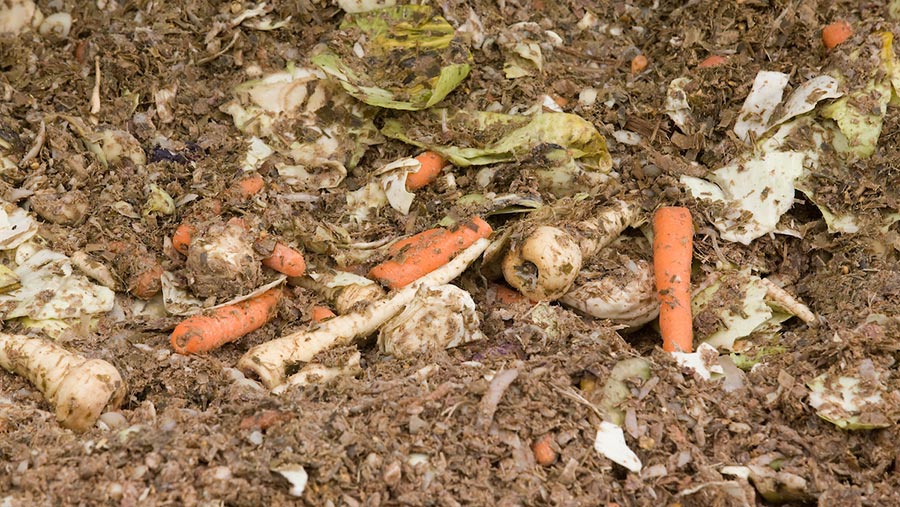Food valued at £1.8bn wasted on UK farms each year, WWF says
 © Tim Scrivener
© Tim Scrivener Almost 3m tonnes of edible food goes to waste on UK farms each year, according to new research by the WWF, which the conservation group has described as a “hidden crisis” for the country.
The report, Hidden Waste, says produce worth £1.8bn is lost each year, which is the equivalent to 6.9bn meals annually, or more than 18m meals a day.
WWF and supermarket giant Tesco, which helped direct the research, want the government and food industry to help farmers measure, report and reduce waste to improve food security and help reverse climate change.
See also: Fruit and veg worth £22m left to rot due to labour shortages
The report has called for mandatory recording of on-farm food waste by farm businesses to be introduced over the next two years so that policymakers can see the full scale of the problem.
“The only action relating to the supply chain is the consultation on mandatory food waste measurement, which focuses solely on large businesses and excludes farm stage all together,” the report said.
“While work to reduce food waste in the supply chain and citizen homes remains important, efforts should target all stages of the supply chain, from farm to fork.”
Research by the Waste and Resources Action Programme (Wrap) has shown that when farmers begin to measure waste, they are better able to identify and target the causes – reducing it and achieving an average 20% increase in profitability.
Future government funding schemes for farmers in England, Scotland and Wales should also consider food waste measurement and reporting as part of payments, the report said.
Report findings
The report found that a total of 3.3m tonnes of food is wasted on UK farms each year, of which 2.9m is edible.
Examples of food waste include livestock of a mature weight that die due to disease or injury, and eggs, cereals and fruit and vegetables that don’t meet specification or grading, as well as crops left unharvested due to a lack of market or labour.
Although when the food can be re-distributed for human consumption – supermarket “wonky veg” ranges, for example – it is classed as food surplus.
Of the 3.3m tonnes of waste, fruit and vegetables contributed more than one-third (1.1m tonnes).
Meat and animal products contributed 800,000t of waste, and cereals and pulses just over 200,000t of waste.
The report said that helping farmers to reduce food waste will require policy and practice changes from government and the supply chain.
Labour shortages
The NFU has repeatedly highlighted labour shortages in the horticulture sector, which the union says has led to an estimated £60m worth of fruit and veg crops being wasted in the first half of 2022.
There have been calls within the agriculture industry to expand the Seasonal Worker Scheme, as well as for the government to help fix the longer-term labour issues affecting sectors such as dairy and pigs.
Katy Norgrove, executive director of advocacy and campaigns at WWF, said: “This hidden crisis shows why we need urgent action to fix our broken food system.
“Given the cascade of benefits that tackling food waste on farms could bring – from bolstering our food security to helping address the climate crisis – UK government and businesses across the food sector must take urgent action to support farmers in slashing food loss and waste on farms.”
